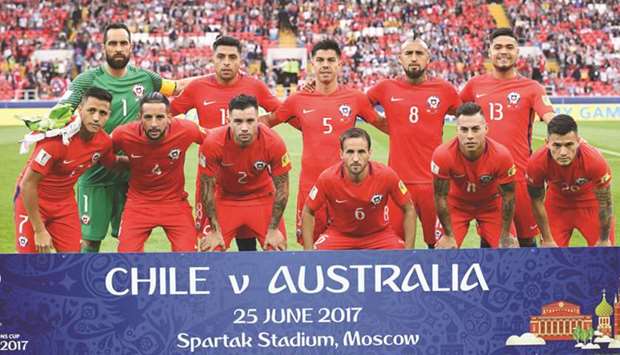Chile’s high-octane style of play has made them one of the world’s most entertaining teams to watch but coach Juan Antonio Pizzi has admitted that it comes with a price. Pizzi said that such a relentless style involved an enormous physical effort, raising questions as to whether an ageing squad will be able to maintain it at next year’s World Cup, should they qualify.
Chile press high, try to win possession deep in the opposition’s half and, when they have the ball, throw players forward in numbers in a manner which former Spain coach Vicente del Bosque once said was like “facing 11 kamikazes”. The system was first adopted under the leadership of coach Marcelo Bielsa, who took them to the 2010 World Cup. It was continued by Jorge Sampaoli who led them to their first major title, the 2015 Copa America, and now by Pizzi, who took over at the start of last year.
When it works, it makes the South American champions an almost irresistible force, as Australia coach Ange Postecoglou commented following Sunday’s 1-1 draw in the Confederations Cup. “The most important thing was not to let Chile dominate the game because when that happens, it’s almost impossible to beat them,” he said.
But Pizzi, whose side face Portugal in the semi-finals tomorrow, acknowledged that it had taken its toll. “Our style of play is very demanding, the players have to put in a great effort,” he said. “Our opponents know this and they often have a different way of playing (against us), they tend not to take the initiative.
“We always want to win back the ball and this needs a lot of effort and sacrifice,” he added. “There’s no doubt that this causes wear and tear and when the games are as close together as they are in this tournament, there is no doubt that the players feel it.”
That could be even more of a concern given Chile’s age — the Confederations Cup squad has an average age of 28.6 — with several key players, including midfielder Arturo Vidal and defender Gary Medel, already over 30. Only two members of the squad are under 23.
It was clear in the draws against Germany and Australia that Chile began to run out of steam in the second half. Pizzi, however, has made it clear that Chile’s style is also what makes them such a competitive team and he is not prepared to change it. “The team’s character and temperament is to always try and create scoring chances,” he said before the start of the tournament. “We have show that our style makes us competitive against any opponents.”

Chile players pose before their Confederations Cup match against Australia in Moscow on Sunday. (AFP)
